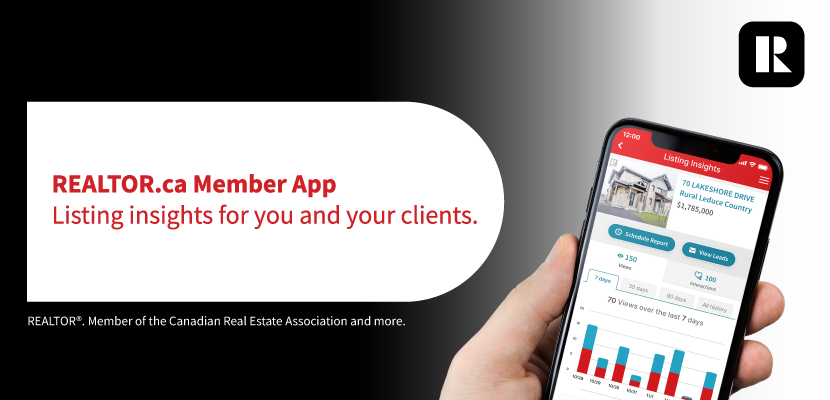On June 25, a new capital gains tax inclusion rate goes into effect. Until then, people selling secondary properties pay tax on 50 per cent of any capital gains. After that date, they are taxed on 50 per cent of the first $250,000 — and on 66.7 per cent of the rest.
It’s a change that’s causing some big concerns with real estate investors, agents and owners of vacation and secondary properties.
First off, what is a capital gains tax?
A capital gains tax applies to the profit made when individuals sell an asset for more than they bought it for (excluding expenses). It does not apply to primary residences because when an owner sells the home they live in, none of the profit is taxable.
This tax only applies to properties that are not primary residences such as cottages, vacation condominiums, rental properties and the like. For properties being sold by trusts or corporations, 100 per cent of capital gains are taxed at the 66.7 per cent rate.
Many people get confused about what these percentages actually mean. They do not mean sellers are forking over up to two-thirds of their profits. What they do mean is that up to two-thirds of their profits are subject to tax — at an individual’s tax rate — in that year. It’s also important to remember that sellers can deduct most expenses from that final taxable number.
Case study: What the capital gains tax increase could look like for a cottage owner
Consider a cottage owner who bought 20 years ago for $250,000 and is selling this summer for $750,000. That’s a $500,000 gain. Let’s say they spent $53,000 on renovations and selling expenses, dropping their profit to $447,000.
- 50 per cent of the first $250,000 is taxed ($125,000)
- 66.7 per cent of the remaining $197,000 is taxed ($131,399)
This adds up to $256,399, which is then added to the seller’s annual income and taxed at their marginal tax rate. In this example, that’s about $33,000 more than this seller would have paid before June 25.
What does this change mean for the real estate market?
Since the new tax rate is just coming into effect now, we don’t have any hard data around it yet. I’ve read reports that people are rushing to sell their cottages, but I don’t think it’s fair to assume the capital gains tax is the main driver for this trend. Spring/early summer is a popular time to sell vacation properties. Plus, in a down market where people may suddenly find themselves in need of capital, selling a multi-million dollar Muskoka cottage might be the thing to do.
Additionally, according to Right at Home Realty agent Julia Cresiun, property owners simply haven’t had enough time to put their places on the market: “Some of my clients wanted to sell as soon as possible but could not, given the short notice and tough market conditions.”
Consumers who don’t have to sell, won’t
They’re more likely to hold onto properties longer than initially planned, waiting until they’re retired or their income is significantly different. And if they do decide to list, they will likely bake that extra cost into the price, artificially propping up average prices across the board and making those properties harder to sell.
Interest in buying investment properties may decrease
The move may discourage individuals and corporations from investing in business, investment or recreational property in Canada. Cresiun has talked to a number of people who are reconsidering their buying decisions for additional investment properties. This will add to the exodus of investors out of the condominium market and reduce available rental inventory.
Smaller real estate investors will feel it the most
This tax is partially an attempt to subvert the “financialization” of home ownership by limiting the profit that can be made through residential real estate. And while it certainly puts a damper on big private equity firms with deep pockets coming in and buying up all the homes, it puts a significant burden on smaller investors such as families who may have an investment property or two as a retirement savings vehicle or a way to earn enough to help their own kids buy property.
Sean Miller, agent at Property.ca, wholeheartedly agrees with me on this point: “It’s unfair to people who made smart investments for their future and their children. If investors are forced to sell preemptively, they could lose out in an already challenging market. It’s a catch-22, trying to make the situation better for some while making it worse for others.”
After the kind of government spending we’ve seen since the pandemic started, the higher capital gains tax rate doesn’t come as a surprise. But in my opinion, it’s a change that hasn’t been fully considered. It’s another example of the government tinkering with the market and refilling its depleted coffers in ways that negatively impact Canada and Canadians. We will only see the real effects of these policies further down the road.

John Lusink is the President of Right at Home Realty, President of RealServus Holding Corp., and President of Property.ca. With more than 36 years of experience in the real estate industry, John’s background includes an award-winning commercial real estate sales career, management of corporate offices for one of Canada’s iconic real estate brands as well as ownership of a major residential real estate franchise. He is an active participant in organized real estate, currently serving in the Real Estate Council of Ontario (RECO) Board of Directors for Region 1 and previously served as a past Director on The Toronto Regional Real Estate Board (TRREB) and as the Commercial Director on the 2018 Ontario Real Estate Association (OREA) Board of Directors.



















I think it’s a shame organized real estate did not lobby against this increase in tax.